Mozambique: Maputo wakes up to reinforced police presence, closed streets ahead of Mondlane's ...
UAE: Mohamed Bin Zayed receives Mozambique PM
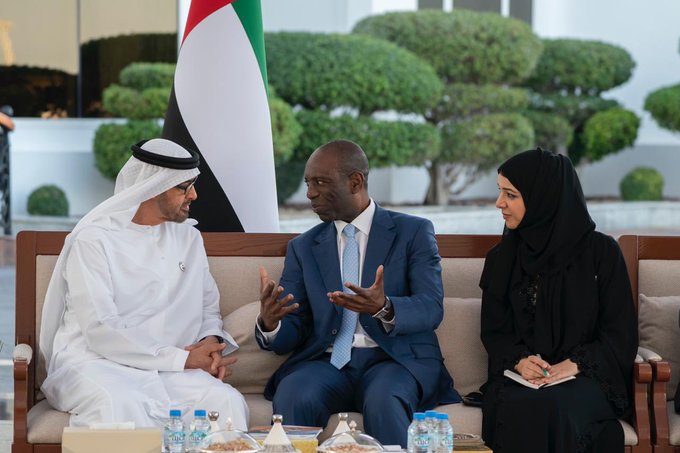
Photo: Twitter /@MohamedBinZayed
His Highness Sheikh Mohamed bin Zayed Al Nahyan, Crown Prince of Abu Dhabi and Deputy Supreme Commander of the UAE Armed Forces, received at Qasr Al Bahr in Abu Dhabi on Monday, Carlos Agostinho do Rosario, Prime Minister of Mozambique, who is currently visiting the UAE.
The two sides reviewed the ties of friendship, as well as the opportunities to strengthen bilateral cooperation, particularly in the developmental, economic and investment sectors.
They also discussed a number of topics of mutual interest and exchanged views on them.
In attendance were H.H. Sheikh Hamdan bin Zayed Al Nahyan, Ruler’s Representative in Al Dhafra Region, Dr. Amal Abdullah Al Qubaisi, Speaker of Federal National Council, FNC, H.H. Sheikh Tahnoun bin Mohammed Al Nahyan, Abu Dhabi Ruler’s Representative in Al Ain Region, H.H. Sheikh Saif bin Mohammed Al Nahyan, H.H. Sheikh Nahyan bin Zayed Al Nahyan, Chairman of the board of Trustees of Zayed bin Sultan Al Nahyan Charitable and Humanitarian Foundation, H.H. Lt. General Sheikh Saif bin Zayed Al Nahyan, Deputy Prime Minister and Minister of the Interior, H.H. Sheikh Hamed bin Zayed Al Nahyan, Chief of the Abu Dhabi Crown Prince’s Court, Sheikh Nahyan bin Mubarak Al Nahyan, Minister of Tolerance, and Sheikh Hamdan bin Mubarak Al Nahyan.
Mohamed bin Zayed receives Mozambique’s Prime Minister to discuss cooperation as well as issues of mutual interest. pic.twitter.com/oRORU04ywR
— محمد بن زايد (@MohamedBinZayed) December 10, 2018
H.H. Sheikh @MohammedBinZayed, Crown Prince of #AbuDhabi and Deputy Supreme Commander of the #UAE Armed Forces received H.E. Carlos do Rosario, Prime Minister of #Mozambique, to discuss ways to enhance cooperation as well as issues of mutual interest.#YearOfZayed@MOFAUAE pic.twitter.com/y9NmYY8uft
— UAE Embassy Maputo (@UAEinMaputo) December 10, 2018
United Arab Emirates
The United Arab Emirates (UAE) is situated in the Southeast of the Arabian Peninsula, bordering Oman and Saudi Arabia. In December 1971, the UAE became a federation of six emirates – Abu Dhabi, Dubai, Sharjah, Ajman, Umm Al-Quwain, and Fujairah, while the seventh emirate, Ras Al Khaimah, joined the federation in 1972. The capital city is Abu Dhabi, located in the largest and wealthiest of the seven emirates.
Since its Federation in 1971, the UAE has developed rapidly and is now noted for its modern infrastructure, international events and status as a trade and transport hub. It possesses among the highest per capita incomes in the world.
Political overview
The President of the UAE is His Highness (HH) Sheikh Khalifa bin Zayed Al-Nahyan, who is also Ruler of Abu Dhabi Emirate. The Ruler of Dubai Emirate, HH Sheikh Mohammed bin Rashid Al-Maktoum, is the Vice-President, Prime Minister and Defence Minister. The Crown Prince of Abu Dhabi and the Deputy Supreme Commander of the UAE armed forces is HH Sheikh Mohammed bin Zayed Al-Nahyan.
The UAE’s federal structure includes a Supreme Council (comprising the Rulers of each Emirate), a Council of Ministers and a semi-appointed Federal National Council with an advisory role. Each Emirate is governed by its own Ruler, with its own local government, courts and police forces.
The UAE is a member of the Gulf Cooperation Council (GCC), the Arab League, the Organisation of Islamic Cooperation, the United Nations, the Organisation of the Petroleum Exporting Countries, the Non-Aligned Movement and the World Trade Organisation. The International Renewable Energy Agency, established in 2009, has its headquarters in Abu Dhabi.
(…)
Economic overview
The UAE is the Middle East’s second largest economy, after Saudi Arabia, and one of the wealthiest countries in the region on a per capita basis. Its current GDP in 2015 was estimated at US$339.1 billion, a real GDP growth rate of around 3.0 per cent.
The UAE has six per cent of the world’s oil reserves and the seventh largest proven natural gas reserves. Petroleum exports were US$126 billion in 2014. In the medium term, oil and gas (which account for over two-thirds of exports and the bulk of government revenue) will continue to underpin the UAE’s economy. However, significant steps towards economic diversification have already been taken, with approximately 70 per cent of GDP now generated by sectors other than oil and gas. The UAE is also developing a civil nuclear energy program and plans to build four nuclear power reactors by 2020, with the first scheduled to come on-line by 2017. Renewable energy generation is also a focus for the UAE, both for domestic energy needs and in terms of investment abroad.
The UAE population of 9.3 million (2014) depends substantially on its expatriate workforce, which made up about 80 per cent of the population in 2012. The UAE government has increased spending on job creation and infrastructure expansion, including in preparation for hosting a world expo in Dubai in 2020. The UAE is also opening up utilities to greater private sector involvement.
Free trade zones attract foreign investors by offering full ownership and zero taxes. There are over 17,000 companies and FDI estimated at over US$73 billion in the free zones. Foreign investors may purchase 109 of the 135 issues on the UAE stock markets, the Abu Dhabi Securities Market and Dubai Financial Market. The remaining 26 issues are primarily those of government-related entities.
Abu Dhabi Emirate, which has the vast majority of oil and gas reserves in the UAE, has made significant investments in establishing aerospace, nuclear power, defence, information technology (micro-processing), petrochemical and clean-tech industries – the latter most prominently represented by the multibillion-dollar initiative of Masdar City, a zero-carbon city outside Abu Dhabi. Abu Dhabi is also investing heavily in educational institutions, such as the Sorbonne and New York University campuses, and cultural and sporting attractions such as the Formula One racing track, Ferrari theme park, and the Louvre Gallery to diversify the economy away from oil and encourage tourism.
Dubai Emirate has diversified into the tourism, exhibitions, events, ICT, re-export and financial sectors. Taking advantage of its position near the head of the Gulf, it has consolidated its historical reputation as a regional entrepôt. Dubai has developed luxury hotels, large port facilities (including Jebel Ali) and a range of free trade zones to attract both manufacturing and services industries.
ALSO READ: UAE Ambassador discusses trade ties with Mozambique PM


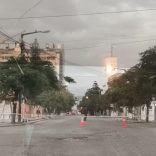

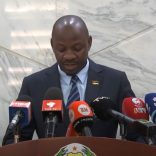
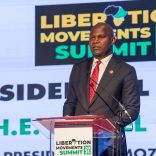
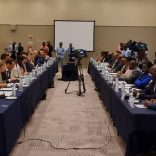
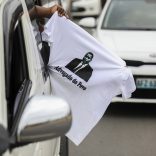


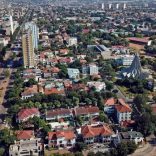
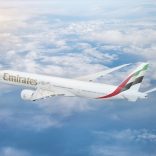
Leave a Reply
Be the First to Comment!
You must be logged in to post a comment.
You must be logged in to post a comment.